Finding a favourite thing proves to be a difficult task oftentimes, no matter the topic, and regarding videogames it might be even more difficult, because this medium is not homogenous in a bit.
The utter pool of to the core different parameters that define a game, create an environment that makes even a simple comparison a tough task, let alone the goal to find a value in this comparison that concludes in the decision to call the game a favourite one.
Regarding a narrative – be it in literature, film, games, or other media –, there always has been the effort to specify some sort of formula, based on the opposition of characteristics: plot-driven versus character-driven, realism versus fiction, profoundness versus simple entertainment.
But the human mind is capable of a plethora of different tastes and partialities. One person’s life-changing narrative experience might be the most boring thing for someone else, and vice-versa. This is it, what makes it fascinating, to determine which criteria let us choose a story to become our favourite, because in the end it is an exploration of ourselves.
We asked our team members about their favourite narrative games and the reason behind it, to give you a first-hand insight, about the likings that shape us when it comes to what we call “favourite”.
Alex: Dragon Age: Origins
My favourite narrative game is Dragon Age: Origins by BioWare, my first serious RPG experience, which of course adds to my retrospective perception of it. While compared with other story-focused videogames DA:O might seem a bit generic, but the writing made me contemplate quite often, which path would be the best for my character and how to reach my goals without losing my integrity.
Plot-wise it surely may not be the most creative (defeat the great evil), but every moment of the game was in perfect tune with itself, thus filling this husk of a proposition on a smaller scale with originality and meaning, seasoned with interesting characters.
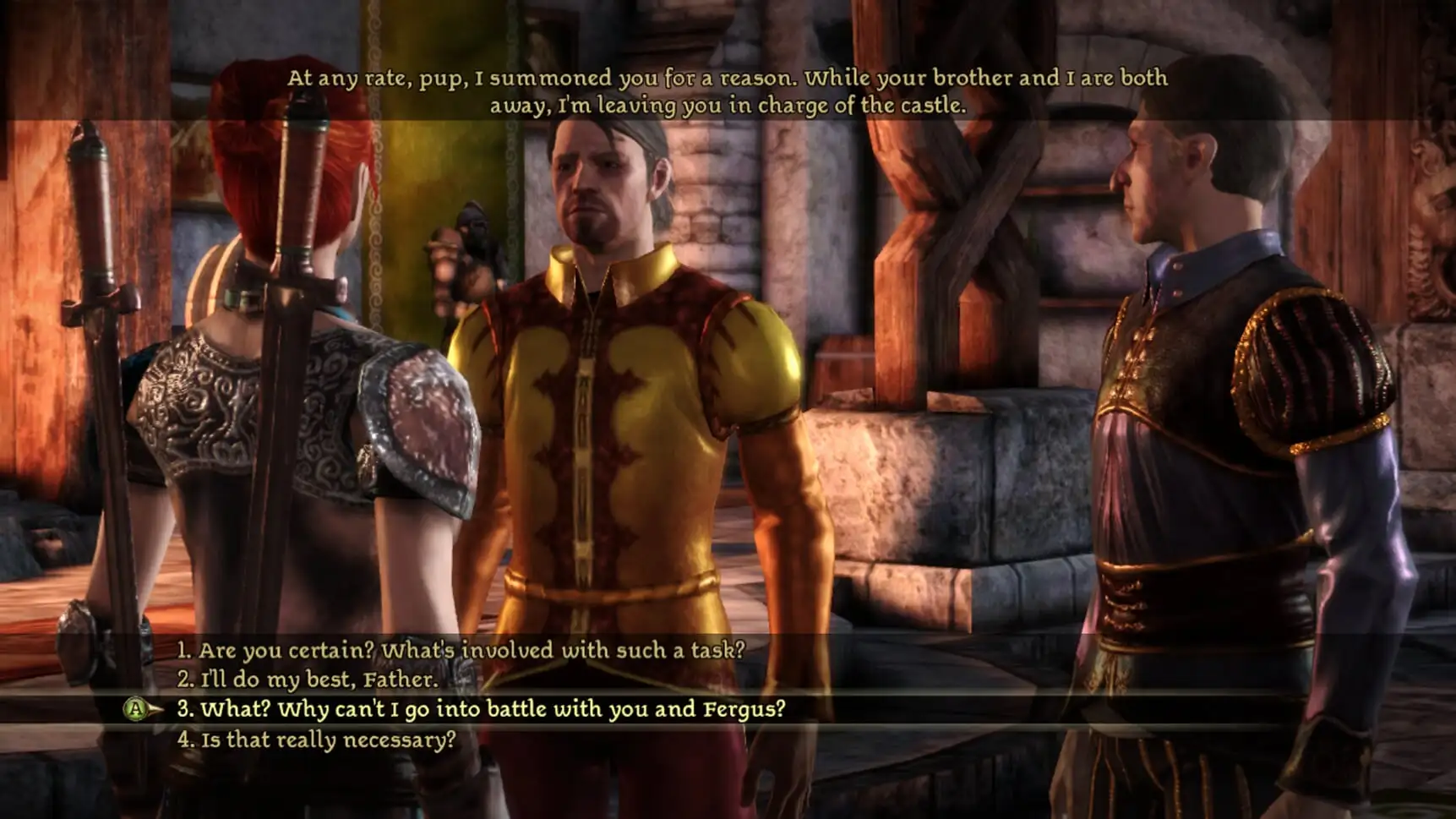
Felix: Star Wars: Knights Of The Old Republic II – The Sith Lords
The Star Wars universe might not be first to come to mind, when thinking about extraordinary narratives. Good versus Evil… The End. That’s it, right? Well, not in the case of KOTOR II by Obsidian Entertainment, because here it is Good and Evil, and everything between, outside, above, below, and behind of this.
In a masterfully written deconstruction, the player is forced to self-reflect not just about his actions but about his mindset that determines these. “Am I playing the good/bad guy just for the sake of being the good/bad guy?” “Was the decision I made really mine or did I follow a predefined path I laid upon myself?”
But it would be a folly to believe that the game wants you to do a neutral playthrough. Because in the end (unlike other games about grey morality) KOTOR II wants you to decline any kind of dogma, to take a decision and stand by it, not to bow to any kind of premise, be it Good, Evil, or the equally inert Neutral.
Of course, this is the hard way. The continuous struggle of decision and the consequence of reluctance, that leads to the game’s most famous quote: “Apathy is death.”

Ines: Bioshock Infinite
Whenever I think about what my favourite narrative game is, my thoughts drift to Bioshock Infinite by Irrational Games. And then I think “But it’s such a gameplay-heavy game, so many shooting sequences. That can’t be it!” and then I will try to think of something else.
But I will be honest with myself today: Bioshock Infinite IS my favourite narrative game. It is the first game that left me absolutely amazed and confused and browsing Reddit for hours to find out what just happened after I finished the game. In addition to that, features some brilliant environmental storytelling. Everything feels so weird and psycho in this city above the clouds, ruled by a mysterious “prophet”. If you are planning to hurry through this game without looking left and right every chance you get, you are missing out on a lot.
This is not only THE game that I wish I could erase from my memory to experience it for the first time again, but also one of the very few games in which the gameplay is “too much” for me and I wish there were not as many corridor shooter sequences distracting me from the story.
Side note: the whole Bioshock series is just chef’s kiss and the DLCs tie it all together but also made everything 10 times more confusing. I love it!
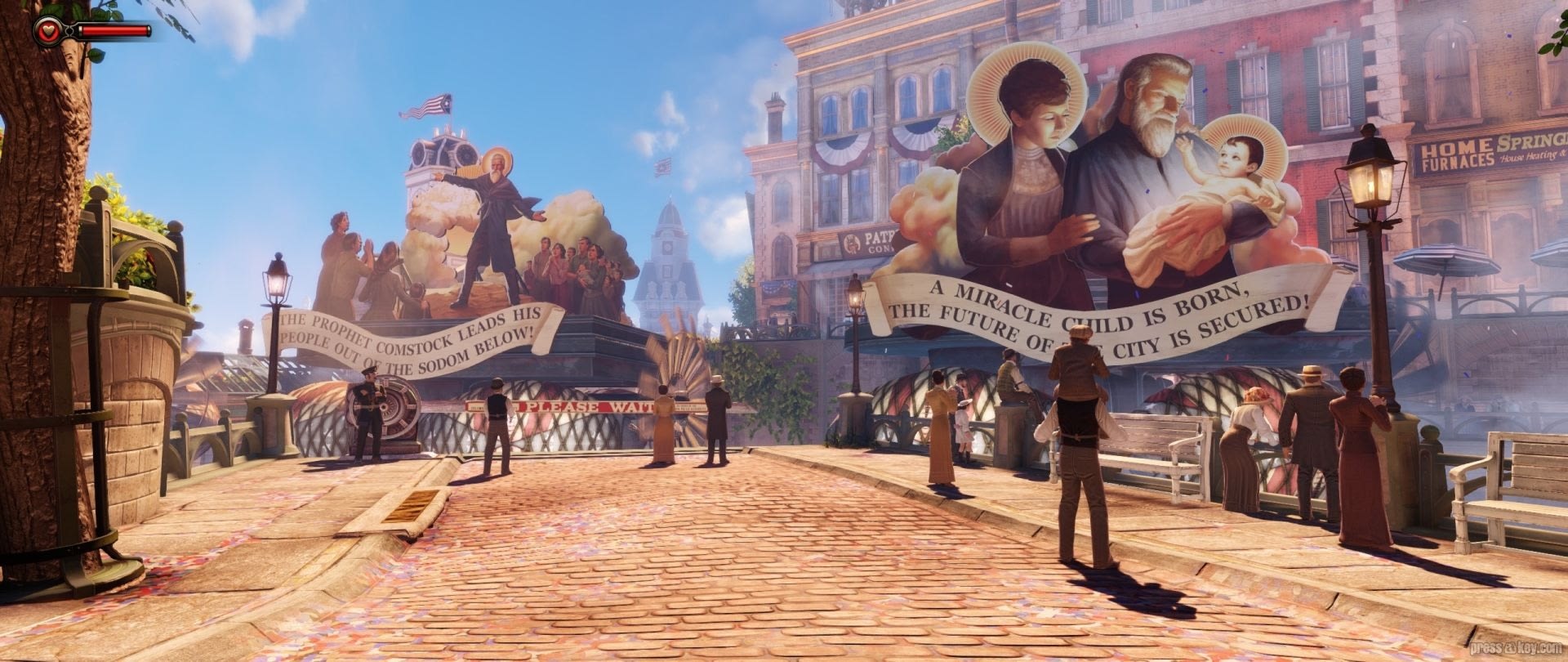
Jannik: Paradise Killer
One of my favourite narrative experiences to date is Paradise Killer by Kaizen Game Works, a locked room murder mystery set on a vaporwave island. Without wasting much time, you are introduced to the crime, and are told to just go out and solve it. With no one to hold my hand, I started rushing off to uncover the big mystery in a random direction on the huge island the game is set on, just to find several new branches spiralling off of my main objective.
The game’s trust in the player feels so refreshing, and while it might completely confuse you with tons of wild themes and worldbuilding at the beginning, the way you play the game shapes the perspective on the whole case. You will come to learn: Fact and Truth are not the same.
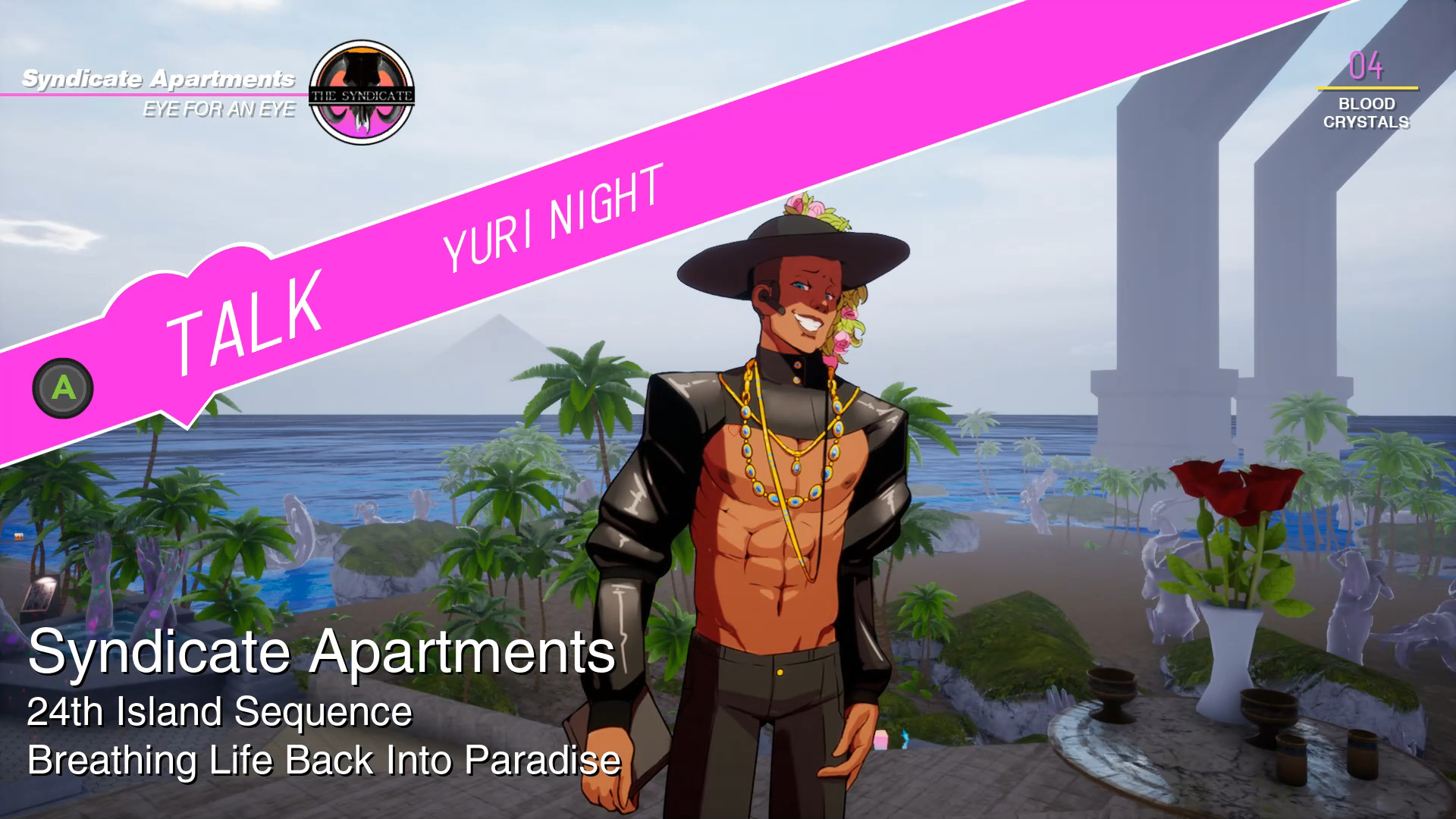
Jens: Firewatch
My favourite narrative game is Firewatch by Campo Santo. For me, it is unique in the way that it tells a very personal, emotional story, and manages to make it feel like the players really build up a personal relationship with Delilah, a character we only ever meet when talking to her through the radio.
Through amazing attention to detail in the writing and clever little call-backs to dialogue choices from hours ago, it feels like players gradually grow closer and closer to Delilah, create in-jokes with her, but also build up the trust to discuss deeper, more personal topics. This is something I have never seen before in other games.

Luisa: Night in the Woods
My favourite narrative game is Night in the Woods by Infinite Fall. It is about a small rust belt town in the US and revolves around a young woman coming back after dropping out of college and realising her home town and her friends changed while she was away.
The game grapples very serious topics like the lack of jobs in small towns, generational conflicts and mental health in a really honest, straight forward way while also being a fun and emotional experience with some supernatural elements that do not take away any of the relatability of the problems of its protagonists.
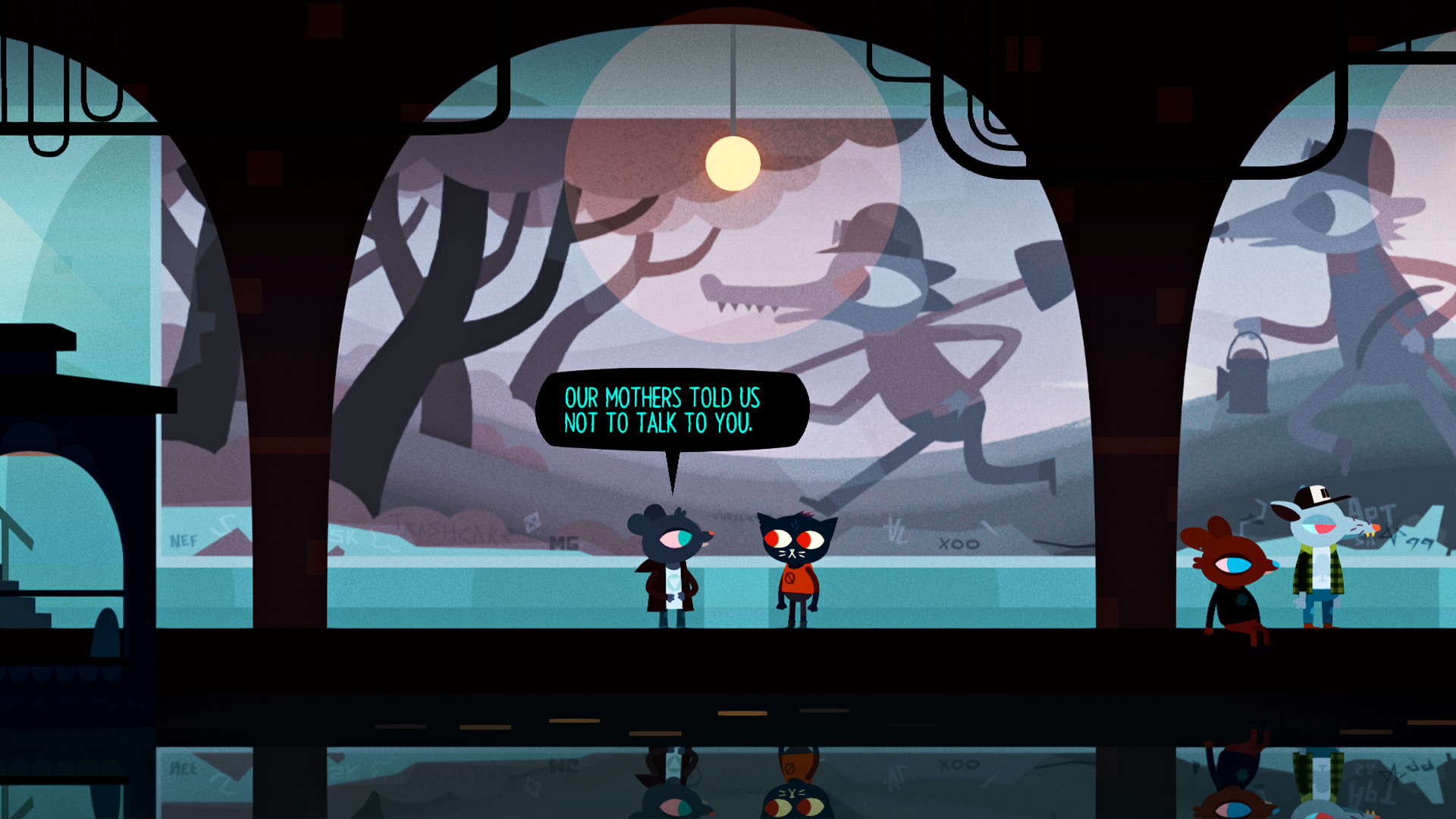
Sascha: Tangle Tower
I am never sure about the “favourite” part of describing games I like, but I can say for sure that Tangle Tower by SFB Games is one of my most favourite games in recent years. The funny detective adventure features beautiful art, entertaining and well-spoken dialogues, lovable characters, a catchy soundtrack, satisfying mechanics and an exciting story – however, those things are only part of why it remains such a memorable moment in my gaming history.
Often times the context in which we play games is as important as the game itself. In this case, the context was a dark and rainy Sunday in the winter of 2022. My girlfriend and I started playing the game right after a late breakfast and we would not stop – except for a quick walk outside to get cake from a nearby café – until we solved the whole case late at night. The coziness of being inside on a rainy day slowly getting immersed into the magical world of a game is something we still refer to when talking about memorable experiences and are looking for when playing other games. Please feel free to make suggestions.
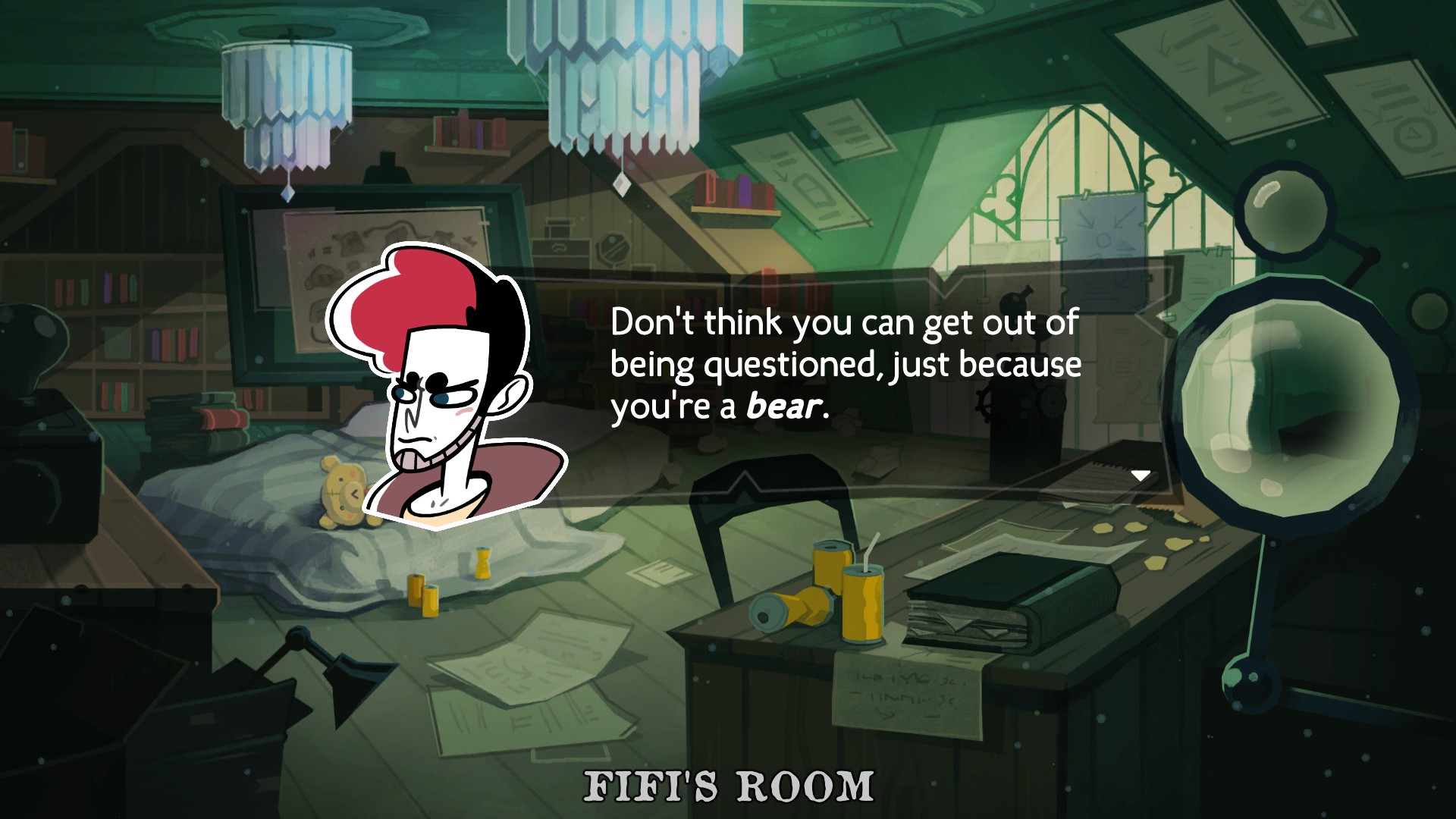
As we can see, the reason to have a narrative game called “favourite” is as diverse as the people you are asking. May it be nostalgia, enlightenment, or the mood of the moment, the reason is an utmost personal act, oftentimes revealing what truly matters to that person.
And such, maybe there is a formula: each story has its audience.





